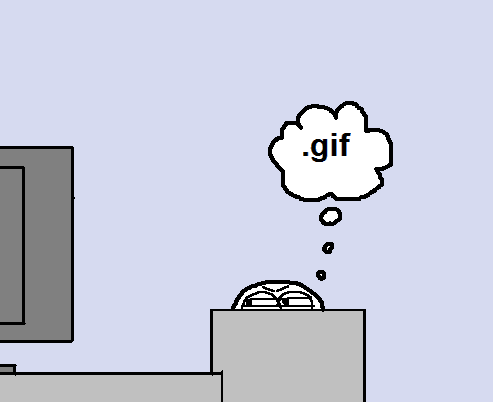No carbs?
Replies
-
Go for whole grains like whole wheat, oat. They are carbs yet they contain lots of fiber that make you feel full longer.
Make sure to buy '100% whole grain' though. Look at the ingredients and the first thing you should see is whole grain.
If you can, go for organic bread since there are lots of additives in most food nowadays.
Good luck!0 -
To anybody who disagrees with what I expressed above, I'll be happy to grab some medical journal sources for you and edit them in when I get home. parkscs, you are indeed correct that I did not factor in fat - I was simply attempting to explain the protein-sparing effect of carbohydrates without getting into a full discourse on metabolism.
Links, not edits. Context is important.
1. Your brain runs fine on ketones.
2. Gluconeogenesis cannot generate the needed number of carbohydrates long term. You need some carbohydrate intake--"some" meaning the kind of low intake one can get from vegetables in the absence of fruits and grains.
3. There s some variance on carb-less tolerance in "2", eg: some First Peoples' tribes with very low carb requirements (and on modern diets, very high rates of diabetes), such as Pima natives and certain blubber-diet-overwintering Eskimo groups.0 -
My nutritionist told me that a person needs 130 grams or more of carbs a day for healthy brain function. I think it depends on what type of carbs you eat to be honest. Non processed food carbs are much better than junk food carbs. Carbs with high fiber are very good too like Quest bars. Most of the carbs are fiber carbs so that is good for you.
Good luck!
I eat less than 30 net carbs a day. My brain is functioning very well, thanks.
I agree, my brain functions extremely well and I eat about 20 net carbs a day.
And most of my carbs come from vegetables. Having said that, I do believe that because I am on a low carb diet my calorie intake is smaller and therefore I am in a deficit as I should be to lose weight. I personally, just feel better on a low carb diet and it works for me. I in no way am incouraging anyone else to do it. To each his own, what works for me doesnt mean it will work for you.0 -
Of course fat will be preferred, but if a person is sticking to ~10-30% of their intake as fat, the rest of their caloric intake has to come from somewhere
10-30% of your calories from fat ... on a low carb diet? Really? You're just demonstrating your misunderstanding when it comes to low carb diets. Even on such a diet, what you're talking about is something like a PSMF (which, even though it's a VLCD/fast, is still muscle sparing). But unless you're designing a VLCD, you're doing it completely wrong if you're setting a fat macro of 10-30%.
As for your studies, did you just pick them at random? They have nothing to do with your original post beyond a general relation to low carb diets. #1 looked at risk of cardiovascular disease, #2 concluded there's no metabolic advantage to a ketogenic diet (and actually their ketogenic dieters lost less LBM by week 6 - woops!), #3 essentially concludes the same, saying calories matter more than a reduction in carbs... did you just list 3 arbitrary studies "off the top of your head?" Not one of them stands for the proposition that your body will begin to prefer protein over fat as a source of energy on a low carb diet, nor do they suggest low carb diets are less sparing of LBM (#2 actually shows the ketogenic dieters lost less LBM than the HC dieters, although it may not be a statistically significant difference).
In any event, let's just agree that "no carb" isn't ideal and call it a day.0 -
No carbs?..... That would be a living h*ll for me!0
-
Most of the functions of your body rely on carbs, especially having ready energy. You may reduce carbs from around 65% to 45%, but I personally see no advantage to anything less.0
-
no carbs? that's crazy talk.
Carbs are good, in a whole food form. (as in whole fruit, whole wheat, potato, etc)
Refined carbs are crap: calories separated from their nutrition: white flour, white sugar, fruit juice, etc.
This is a good book. https://www.drmcdougall.com/health/shopping/books/starch-solution/
Anyway, eat only whole foods, not processed, as much as you can. Eat a wide variety of things, but avoid white flour, white sugar, added refined oils. Easy peasy. 0
0 -
I actually GAINED weight doing low carb. And I was tired on the time, so my workouts suffered. Before I tried it, I never really had a sweet tooth, didn't drink soda, didn't care for pasta, ate the filling off of my sandwich......in other words, not a carbaholic anyhow. Cutting them out actually made me crave carbs I couldn't care less about before. It was not fun, and not successful for me.
I've lost 28 pounds since I stopped doing it. Now I just count straight calories and work out five days a week, including strength training.
Cutting out an entire food group does not sound very healthy or fulfilling to me. However, this is MY body, not yours. If it works for you, great. If it doesn't, stop. But stop more quickly than I did (~20 pounds later). 0
0 -
I like carbs. But I try to be choosy and eat carbs in the form of fruits, veggies and such. The only time I restrict my carbs is when I am experiencing a flare-up of my fibromyalgia. Some restrict their carbs to keep their glycemic index low to control their diabetes. If you aren't needing to restrict carbs for a specific health reason, eat them. Just watch your macros and be happy!0
-
Eliminating carbs is absolutely not necessary. Cutting down on carbs, though, will make your life a lot easier. It'll force you to eat more protein, which will make you feel more full, which will keep you happier and more satisfied during your weight loss.
Having said that, when you get to the point where you are avoiding fruit and certain vegetables because "they have carbs," well, you're only hurting yourself because fruits and veggies are very nutritious and necessary to maintaining good health. Maybe a little less fruit, a little more veggies, but...you get the point.0 -
Without carbs, I'd be miserable.
I've successfully lost 135 lbs (give or take a lbs) all whilst eating carbs.0 -
Eliminating carbs is absolutely not necessary. Cutting down on carbs, though, will make your life a lot easier. It'll force you to eat more protein, which will make you feel more full, which will keep you happier and more satisfied during your weight loss.
Having said that, when you get to the point where you are avoiding fruit and certain vegetables because "they have carbs," well, you're only hurting yourself because fruits and veggies are very nutritious and necessary to maintaining good health. Maybe a little less fruit, a little more veggies, but...you get the point.
Don't forget the other carb loaded essential...Oreos. These are a must and should never be cut out.0 -
I'm no expert, but any time you cut out certain amounts or different kinds of foods you will end up losing faster. When you quit carbs your body goes into ketosis and then it goes directly to burning fat. I hear a lot people say their cholesterol and blood pressure get better. I've been trying it for 3 weeks and did OK then fell off. Its very hard for me to figure out new foods to eat that are not loaded with fat! Plus after while for me anyway, i really start to crave those carbs..
That's because ketogenic diets are based on fat.
It's high fat/low carb, mod protein.0 -
No. It's not healthy or particularly safe. Carbs provide fast energy to feed into cellular respiration. Just eat at deficit and balance your nutrition.

I guess I'll just die then :frown:0 -
Don't go on a crazy no carb diet. They are no fun and really hard to stick too. Veggies have carbs. Almost everything does.
However, here is a great good recipe that helps cut some carbs and gives some flavor with the protein.
http://www.bodybuilding.com/fun/3-healthy-fat-loss-recipes-for-getting-lean-and-mean.html0 -
It's crazy how people actually think pastas/bread/rice are a food group lol.
They aren't. They aren't real food. They are processed garbage. It's the same as going to mcdonalds and buying a burger. It's the same as buying a package of cookies.
You shouldn't demonize "carbs' but when people say carbs are bad for you they mean grain products and you would do very well eating less grain products. Get your carbs from some starches and some fruit0 -
All the healthiest and longest living populations eat grains. Look at the Blue Zone populationsIt's crazy how people actually think pastas/bread/rice are a food group lol.
They aren't. They aren't real food. They are processed garbage. It's the same as going to mcdonalds and buying a burger. It's the same as buying a package of cookies.
You shouldn't demonize "carbs' but when people say carbs are bad for you they mean grain products and you would do very well eating less grain products. Get your carbs from some starches and some fruit0 -
Yes. Context is soo very important in this discussion.
However, my mind keeps going to.... 0
0 -
To anybody who disagrees with what I expressed above, I'll be happy to grab some medical journal sources for you and edit them in when I get home.
Edit: Off the top of my head, please see:
1. Lagiou P, Sandin S, Lof M, Trichopoulos D, Adami HO, Weiderpass E. (June 26, 2012). "Low carbohydrate-high protein diet and incidence of cardiovascular diseases in Swedish women: prospective cohort study". British Medical Journal 344. e4026.
2. Carol S Johnston, Sherrie L Tjonn, Pamela D Swan, Andrea White, Heather Hutchins and Barry Sears (May 2006). "Ketogenic low-carbohydrate diets have no metabolic advantage over nonketogenic low-carbohydrate diets". American Journal of Clinical Nutrition 83 (5): 1055–61.
3. Dena M. Bravata, MD, MS; Lisa Sanders, MD; Jane Huang, MD; Harlan M. Krumholz, MD, SM; Ingram Olkin, PhD; Christopher D. Gardner, PhD; Dawn M. Bravata, MD (2003). "Efficacy and Safety of Low-Carbohydrate Diets". JAMA: the Journal of the American Medical Association 289 (14): 1837–50.
Well, I don;t have time to pull up all the appropriate studies, but I can comment on the sample you provided.
1) is a cohort study that looked at a survey of diet on entry into the study. Made absolutely no attempt to measure or even ask about diet during the follow up period. Can't draw any meaningful conclusions from it.
2) &3) show no adverse effects of low or lower carbohydrate diets. (At least these studies were looking at people on a diet)0 -
This content has been removed.
-
I have tried the South Beach diet, which in the first phase for two weeks I believe is "no carbs" you lose alot of weight in those 2 weeks, I lost as much as 15 pounds one cycle of 2 weeks.
The diet was alright, but when I went to phase 2 and 3 and added carbs in, I just found I was gaining back what I lost in the first phase.
Sorry to go off topic but that is my experience with no carbs, I think it works but why not eat a food group if there is diets out there that allow you to? I am 100 % calorie counting, I dont like the no carb diets, too much good stuff comes from carbs
I did South Beach a few years ago, and couldn't do Phase I. I felt sick within the first 2 days like I would pass out. I ended up doing Phase II, and I lost about 1 lb. a week. Phase II has some carbs, whole wheat bread, oatmeal and such. I went from around 140 to 120 but lost at a normal pace. I think it took me about 5-6 months to lose the weight.0 -
This content has been removed.
-
Alright, you got me. Carbohydrates are actually alien probes inserted into our bodies as we sleep. 1g of carbs represents exactly 45,003 probes. I am merely a spokesperson for my Spacefaring Overlords (may their praise be profound and sexy).
Someday, we will find a way of infiltrating your group as well, Brotherhood of the Atkins. Be ready, for tomorrow that hamburger wrapped in lettuce may actually be an egg sac.
ZOLTAN
ZOLTAN
ZOLTAN 0
0 -
This content has been removed.
-
This content has been removed.
-
This content has been removed.
-
My husband has dropped 20 lbs. in 4 months just by knocking out carbs..no counting calories. He has taken it to the extreme though, and hasn't had a piece of fruit since March. :-/
I personally cannot give up carbs. I'm just watching my calories.0 -
How about these ones then?
In the Foster/Wyatt study [1], a comparison between a low carb/high protein diet (A) and an energy-equivalent low-fat high-carb diet (B), weight loss for diet A was greater that B initially, but after twelve months both diets offered similar amounts of weight loss. Furthermore, according to Yang and Itallie [2], weight lost on a low-carb diet is the result of two things: loss of fat-free mass and overall caloric reduction. Now, consider that for every gram of glucose removed from glycogen, 2.7g of water also goes along with it [3] - that adds up to pounds lost on the scale, especially during the inital period of dramatic weight loss seen in low carb diets, but does not express a distinct advantage longitudinally over low-fat high-carb diets, which supports the results in Foster/Wyatt.
---
[1] - Gary D. Foster, Ph.D., Holly R. Wyatt, M.D., James O. Hill, Ph.D., Brian G. McGuckin, Ed.M., Carrie Brill, B.S., B. Selma Mohammed, M.D., Ph.D., Philippe O. Szapary, M.D., Daniel J. Rader, M.D., Joel S. Edman, D.Sc., and Samuel Klein, M.D. "A Randomized Trial of a Low-Carbohydrate Diet for Obesity." N Engl J Med 2003; 348:2082-2090May 22, 2003DOI: 10.1056/NEJMoa022207
[2] - M U Yang and T B Van Itallie. "Composition of weight lost during short-term weight reduction. Metabolic responses of obese subjects to starvation and low-calorie ketogenic and nonketogenic diets." J. Clin Invest. 1976;58(3):722-730.
[3] - Karlsson J, Saltin B. "Lactate, ATP, and CP in working muscles during exhaustive exercise in man." Journal of applied physiology 29:5 1970 Nov pg 596-602.
Once again you are presenting meaningless information
#1) Foster's study did not show any disadvantage to the low carbohydrate diet. and had poor compliance. Nothing of value
#2 was a short term study of near starvation (800kcals) which actually demonstrated greater loss with the low carb diet (although, as everyone knows in the short term water loss is key factor) Nothing of value
#3 has nothing to do with the low carb or other dieting strategies.
Color me gone. Nothing further of value in this thread0 -
This content has been removed.
-
Being a type 2 diabetic that is highly carbohydrate sensitive (they spike my glucose readings) I am now eating a low carb (less than 20 g per day) , moderate protein, high fat protocol and it is the best thing I have ever done. My macros are 5% carbs, 15% proteins, 80% fats. Carbs are not required to live but protein and fat are. I am eating a ketogenic diet.
If you want to do this, you need to expect to have a learning curve to do it properly. I have been reading and researching daily for 6 months and still have a lot to learn but time will pass anyway and I might as well be wiser for it. Fats, including saturated fats, are not bad for you unless you combine them with excessive carbs. Switching from a typical SAD diet with high carbs mostly via grains and low fat to this protocol has dropped my HgbA1c from 7.9 with medications to 5.5 (and falling) without medications and I have boundless energy. It IS easily sustainable without a problem and anyone who says otherwise is not doing it correctly. My husband has already lost 36 lbs on it and he is not diabetic, loves it and plans to stay on this for the rest of his life, too. We eat a huge abundance of organic vegetables, non-commercial meats, no grains, no dairy except for grass fed butter, some heavy cream, real cheeses or cream cheese for treats (they can bump my sugar), no fruits at the moment while losing weight but berries are the best choice and we will add them back later on, we eat similarly to Primal with no veggies that grow underground (all starchy) and no corn for the same reason.
Dana Carpender has several great low carb cookbooks and she has been low carb for 17 years and counting.
I just made low carb full fat raw milk ice cream that is amazing and guilt free .
.
You get into trouble with eating high fat and high carbs. You have to educate yourself.
Watch Food, Inc if you want to know more, read The Art and Science of Low Carb by Volek and Phinney
Dr. Andreas Eenfeldt is a good start at www.dietdoctor.com0
This discussion has been closed.
Categories
- All Categories
- 1.4M Health, Wellness and Goals
- 398.2K Introduce Yourself
- 44.7K Getting Started
- 261K Health and Weight Loss
- 176.4K Food and Nutrition
- 47.7K Recipes
- 233K Fitness and Exercise
- 462 Sleep, Mindfulness and Overall Wellness
- 6.5K Goal: Maintaining Weight
- 8.7K Goal: Gaining Weight and Body Building
- 153.5K Motivation and Support
- 8.4K Challenges
- 1.4K Debate Club
- 96.5K Chit-Chat
- 2.6K Fun and Games
- 4.8K MyFitnessPal Information
- 12 News and Announcements
- 21 MyFitnessPal Academy
- 1.6K Feature Suggestions and Ideas
- 3.2K MyFitnessPal Tech Support Questions




















